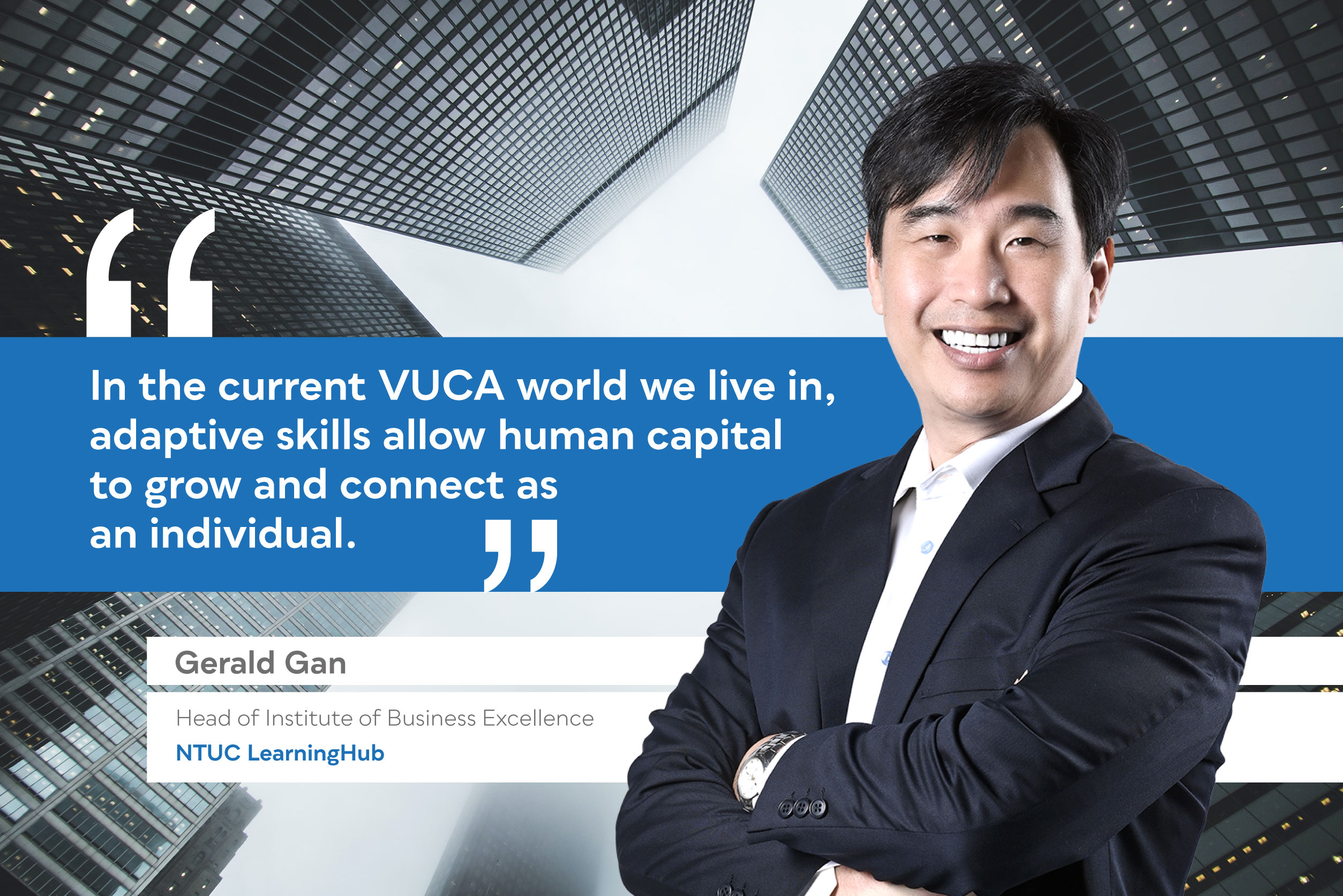Shaping workforce learning in a transformed workplace
- Shawn Liew

Among the many challenges the pandemic has presented to organisations in Singapore, their resiliency and adaptability in managing the crisis have been particularly tested as entire operations shifted online.
As workplace transformation continues to gain pace, organisations need to rethink the way they approach workforce learning, suggested Gerald Gan, Head of Institute of Business Excellence, NTUC LearningHub (LHUB). Speaking to HRM Asia, he said, “Companies which are not prepared with the necessary skills and infrastructure risk getting left behind by their more agile counterparts and competitors.”
Encouragingly, there has been a concerted effort to adapt learning and development (L&D) programmes in Singapore since the onset of the pandemic. Drawing on findings from NTUC LHUB’s new Workplace Learning in Workplace Transformation (WLWT) report, Gan revealed that 75% of employees and 70% of employers said that their company’s focus in L&D programmes have either ‘increased’ or ‘remained the same’ since the pandemic started.
“73% of employers identified the desire to equip employees with the necessary skills to adapt to the new normal as the top reason for the increased focus on L&D,” he added.
However, while training opportunities have been generally embraced, work-from-home (WFH) arrangements put in place because of the pandemic proved to be a challenge for employers and employees alike.
According to the WLWT report, employees found it challenging to participate in virtual training as progammes lack the interaction (60%) and dynamism usually found in physical settings (55%). With so many work tasks being carried out online, fatigue was another key concern shared by employees (53%), while employers found remote working arrangements (39%) and COVID-19 restrictions (37%) to be disruptive when implementing training programmes.
Gan highlighted, “To overcome the challenges posed by remote working, 50% of employers believe that changing the training approach to adapt to remote learning is important, while 47% think that exploring innovative methods of training such as game-based learning can help increase employee participation.”
Adaptive skills critical for success of hybrid workforce
While WFH continues to be the default arrangement in many countries, including Singapore, a hybrid workforce is likely to emerge as organisations contemplate the partial return of their employees to the traditional office space, while some employees continue to work remotely.
In making this transition, organisations will need to ensure that their employees are equipped with the necessary skills to adapt. “Adaptive skills help employees to better navigate and adapt to workplace disruptions,” Gan said.
The WLWT report, for instance, found that adaptive, or soft skills such as communication and leadership are most prevalently offered in organisations’ L&D programmes (72%), as compared to technical skills. (70%).
To equip employees with the critical adaptive skills for them to thrive in a hybrid workplace, Gan recommended that HR and business leaders first identify skills gaps, and pinpoint which competencies are required for their business to remain viable, and which support workplace transformation.
He continued, “Comparing the identified skills with the current proficiency levels of employees ensures that the appropriate training intervention can be implemented to build a future-ready workforce.”
NTUC LHUB is currently offering a wide range of courses that are specifically designed for a hybrid workforce to stay relevant and productive, including The 360 Degree Leader In a Hybrid Workplace, Manage Diverse Teams In a Hybrid Work Environment, Foster Service Innovation Powered by ESSEC In a Hybrid Work Environment, and Direct End-to-end Change Management Powered by Kotter, among others.
These adapted skills programmes are also curated based on the SkillsFuture Singapore (SSG) framework, which identifies thinking critically, interacting with others, and staying relevant as the critical core adaptive skills for organisations and employees in Singapore.

NTUC LearningHub offers a wide range of adapted skills programmes that are curated based on the SkillsFuture Singapore (SSG) framework, which identifies thinking critically, interacting with others, and staying relevant as the critical core adaptive skills for organisations and employees in Singapore.
Gan added, “The objective of these courses is to help organisations stay nimble and agile in this challenging climate. Individuals will be empowered with the skills to be an all-round leader, lead diverse teams, and foster service innovation to bring value and elevate their strengths, especially in steering changes to adapt and thrive during the pandemic.
Creating a more effective learning environment
According to the WLWT report, 75% of employees say having a mix of programmes conducted by in-house trainers and external organisations is the most effective mode of learning. Programmes conducted by in-house trainers encourage knowledge sharing within the organisation, making it easier for employees to advance in their careers.
External training, however, can supplement the gaps of internal programmes by instilling specialised knowledge and skills from industry experts, which is essential for employees to keep with up with the fast-changing business landscape.
READ: NTUC LHUB sets SMEs in Singapore on the road to digital success
Organisations thus, should adopt a multi-pronged approach to training, Gan recommended. “Give employees the freedom to choose their own learning pathways and formats according to their individual training needs,” he said. “This flexibility will empower them to take ownership of their own development.”
With workplace transformation continuing apace, Gan was also keen to highlight the importance of lifelong learning, and how it starts at the top for organisations. “When business leaders lead by example, they can showcase and reinforce the need for upskilling, thus instilling the confidence in employees to pursue their own personal and professional development,” he concluded.
Click here for more information on the adaptive skills programmes offered by NTUC LearningHub.






